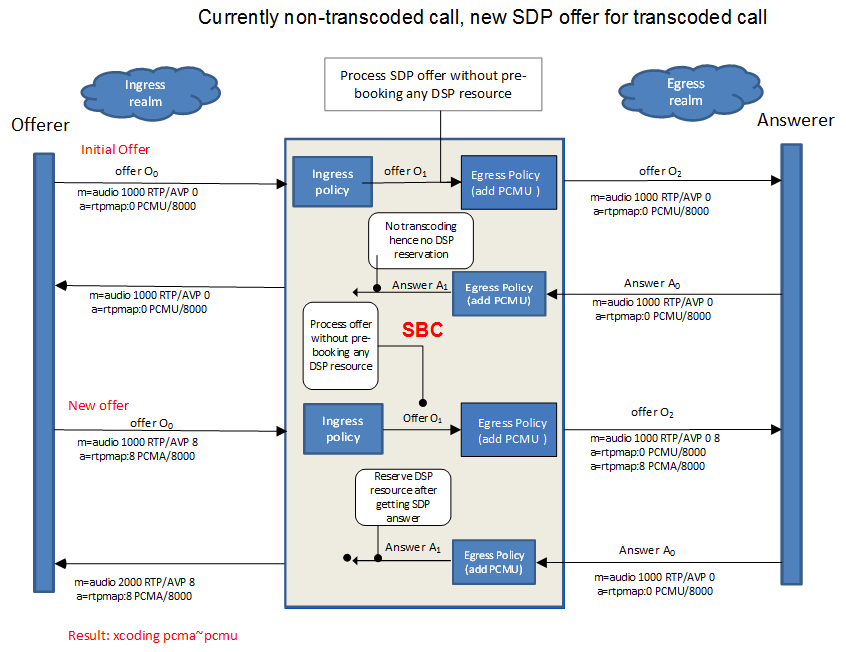Reactive Transcoding
When setting up transcoded calls the Oracle Communications Session Border Controller (OCSBC) reserves a Digital Signaling Processor (DSP) resource for the incoming SDP offers that need transcoding. The default behavior is to pre-book the DSP resource and use it when the system's egress policy qualifies the SDP offer for transcoding.
Alternatively, the OCSBC offers a reactive-transcoding option where the DSP resource is reserved after the SDP answer is received. Reactive transcoding is enabled by setting media-manager-config, reactive-transcoding to enabled. The advantage of this process is for every call that comes in the DSPs need not be pre-booked and instead can be dynamically reserved. The ideal situation for this behavior is when only a few calls need transcoding and the network traffic pattern is well known.
The OCSBC does not perform reactive transcoding on all transcoding call flows. When you configure support for the following features, the OCSBC reserves DSP resources:
- Pooled-transcoding
- dtmf-in-audio detection
- 140-Baudot transcode
- Fax call
- RTCP generation
- FAX tone detection
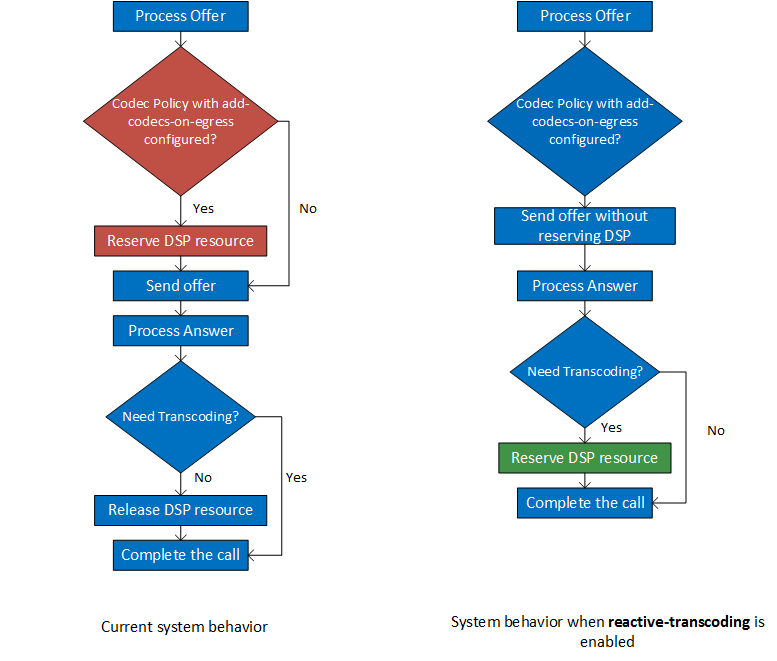
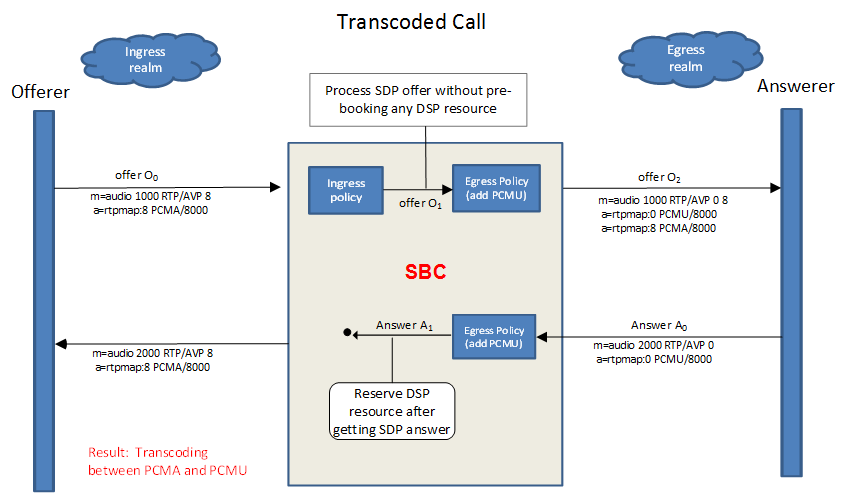
Note:
The DSPs will be reserved only for the call currently being transcoded. This avoids DSP exhaustion when there are multiple incoming offers.
Reactive Transcoding Examples
Scenario 1: Current Call : Transcoded, New offer: Transcoded
When a new offer is processed, the Oracle Communications Session Border Controller checks if the call is transcoded. Oracle Communications Session Border Controller pre-books DSP resources while processing new a SDP offer. After getting the SDP answer if the Oracle Communications Session Border Controller finds that the call still needs transcoding, it continues to keep the DSP resources.
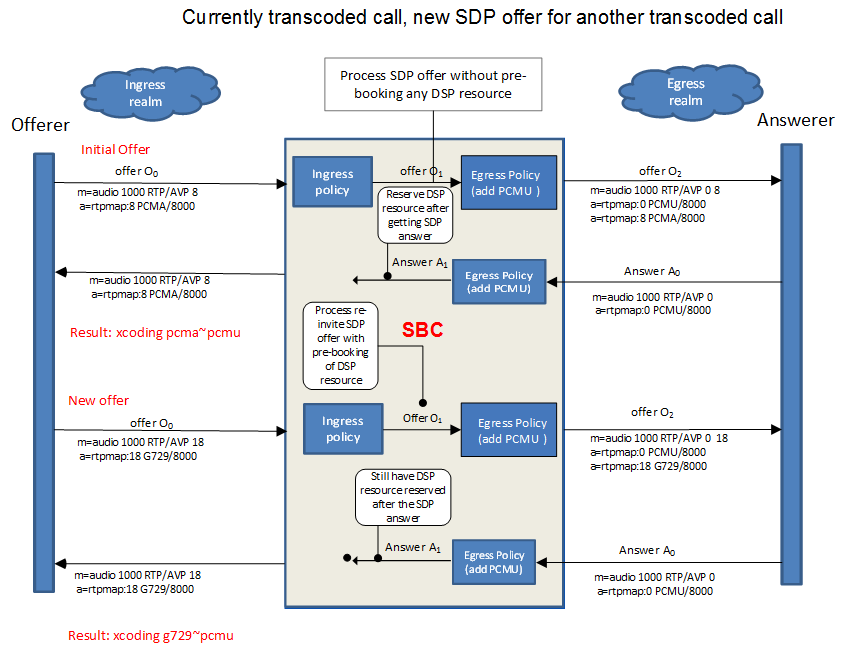
Scenario 2: Current Call : Transcoded, New offer: Non-Transcoded
When a Re-INVITE offer is processed, the Oracle Communications Session Border Controller checks if the call is already transcoded. Oracle Communications Session Border Controllerpre-books DSP resources during SDP offer of re-invite to avoid failure to grab DSP after SDP answer during DSP exhaustion case. After getting the SDP answer, if the Oracle Communications Session Border Controller finds that the call does not need transcoding any more, it releases the DSP resources.
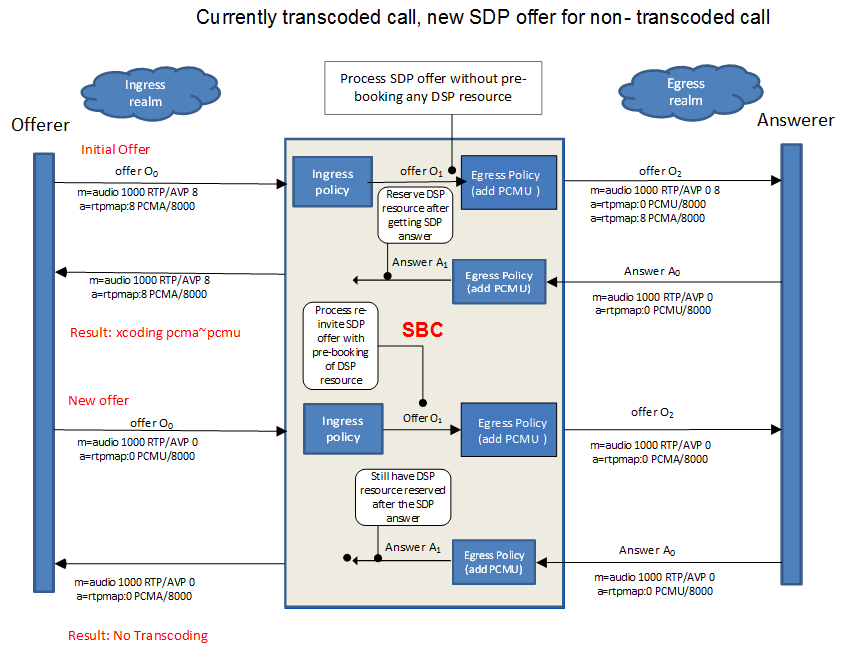
Scenario 3: Current Call : Non-Transcoded, New offer: Transcoded
If a Re-INVITE is received when the reactive-transcoding mode is enabled, it will be handled as a regular offer. The DSP resource will only be reserved after receiving the SDP answer, as necessary.
